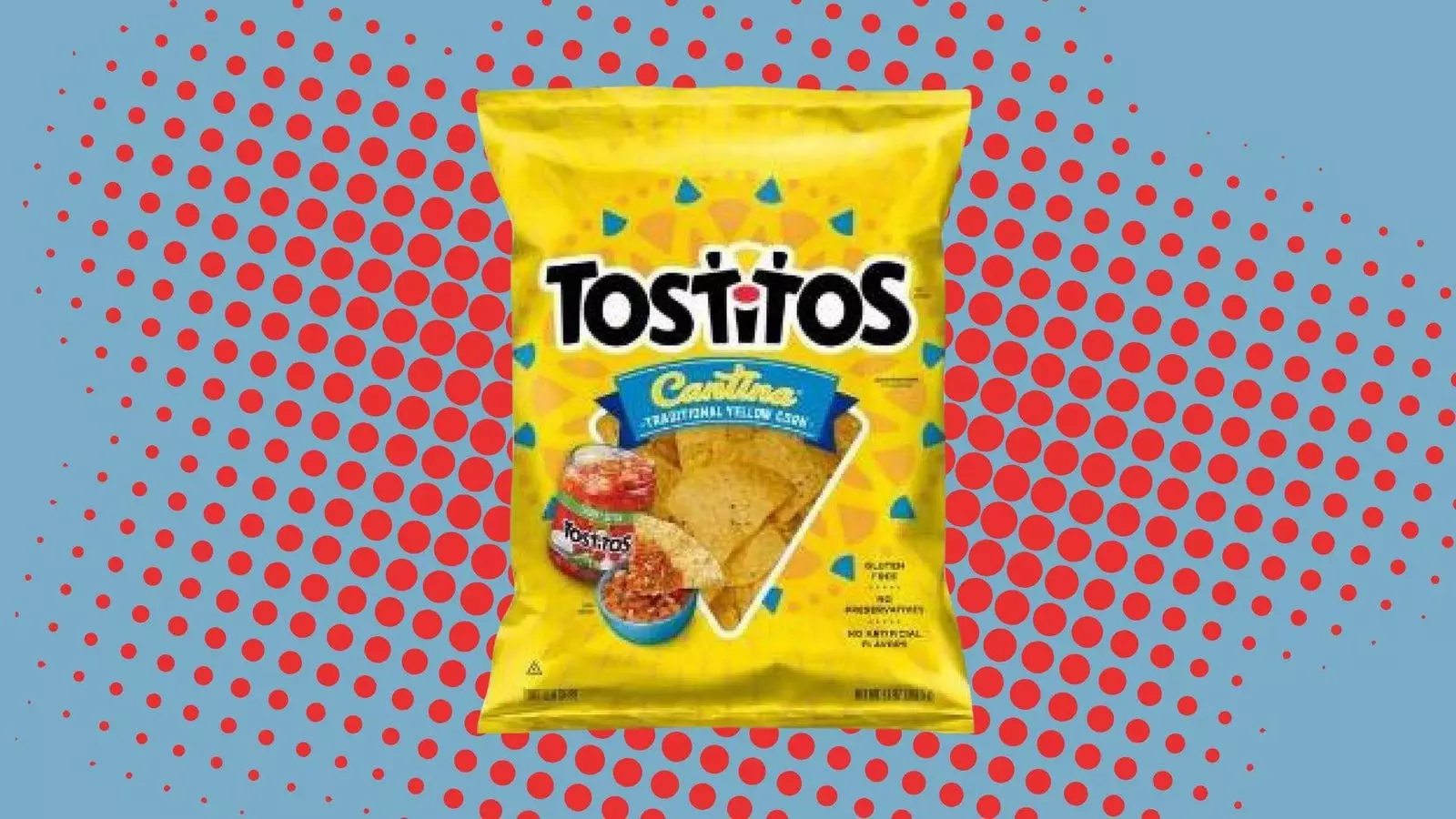In an alarming incident involving Tostitos Cantina Traditional Yellow Corn Tortilla Chips, the company Frito-Lay has issued a Class I recall due to a potentially dangerous labeling error. This designation—assigned by the FDA—is the most severe and often involves situations where consuming a product could lead to serious health risks or even fatalities. In this instance, a select number of bags may contain nacho cheese-flavored chips, which contain milk, despite the absence of this critical ingredient from the packaging label. This incident highlights a severe issue not just for those who enjoy snacking but for millions who rely daily on accurate allergen information to maintain their health and safety.
For individuals with a milk allergy or lactose intolerance, a vague label or misbranded product is not merely an inconvenience; it represents a direct threat to their well-being. The context of a snack could turn instantly perilous if an unconscious bite leads to a severe allergic reaction. It demonstrates the profound responsibility manufacturers have to ensure that the information on their product labels precisely reflects what the consumer ingests.
The Nature of Class I Recalls
Class I recalls are not issued lightly; they signal an urgent need for action due to the possibility of adverse health effects. The FDA closely monitors such recalls, as they are indicative of deeper issues around food safety, quality controls, and corporate accountability. In the case of Tostitos, fewer than 1,300 bags are affected, and the company has signaled a swift response by pulling these products off the shelves and notifying the regulatory bodies.
The rapidity of Frito-Lay’s response is commendable, reflecting a corporate commitment to safety and transparency. However, the underlying issue raises significant concerns about how frequently these types of incidents occur. Indeed, one must question whether such lapses are isolated instances or part of a broader, systemic problem in food manufacturing and labeling practices. How can consumers be reassured that their favorite products are safe, particularly when they depend on accurate labels to make informed choices?
The Impact on Consumers
Recalls can lead to a swift loss of trust between consumers and brands, especially when the food in question is a staple in many households. The population living with food allergies is growing; as a society, we have a responsibility to be vigilant in protecting this community.
For a significant portion of the American populace, each grocery shopping trip includes careful scrutinization of ingredient lists—often on items that should otherwise be simple snacks. These incidents break that trust, potentially putting lives at risk for what should be straightforward food choices. When a company inadvertently includes allergens in products marketed as safe, it underscores a negligence that has far-reaching implications, sparking anxieties further than just chips in a bag.
The Bigger Picture: Allergen Transparency
This recall serves as a microcosm of a broader demand for allergen transparency in the food industry. The labeling policies are not merely regulatory checkboxes; they are crucial lifelines for many individuals who navigate their diets around strict allergen management. Every misstep in labeling could catalyze a series of health crises that could have otherwise been avoided.
As we increasingly consume processed foods, the onus is on manufacturers to implement rigorous checks and balances in their production and labeling processes. Beyond mandatory regulations, businesses should foster a culture of accountability that emphasizes consumer welfare over profit margins. Trust is not something that can be easily re-established; it is built over time through consistent integrity in practices.
Caution and Corporate Responsibility
While the average consumer might believe that such recalls are common quirks in the food industry, it’s essential to view them through a lens of caution. Engaging with brands that value consumer safety and transparent ingredient sourcing can empower individuals facing dietary restrictions.
Frito-Lay has acted to mitigate this particular incident, but the responsibility does not end there. Food manufacturers need to craft allergen labeling protocols that consumers can rely on without second-guessing their choices. It is not merely about compliance; it is about ingraining safety at every stage of the supply chain. For those living with food allergies, the stakes are incredibly high, and the repercussions of inadequate labeling can go beyond mere inconvenience—they can be life-threatening.

